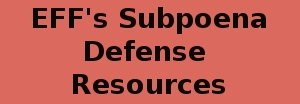Our newest guide is designed to help scientific, research, and archival projects understand Intellectual Property and other important considerations when entering a Fiscal Sponsorship relationship.
Are you an individual, researcher, scientist, small laboratory, or archivist interested in collaborating with a larger non-profit? Then you may need a fiscal sponsorship agreement. A fiscal sponsorship is when a non-profit organization offers their legal and tax-exempt status to an unincorporated project engaged in activities related to the sponsor’s mission. It typically involves a fee (or percentage of donations) paid by the project to the sponsor in exchange for the sponsor non-profit’s administrative support and any other activites agreed upon and documented in the fiscal sponsorship agreement.
When entering a fiscal sponsorship, most people are primarily concerned with receiving the benefits of a larger supporting organization and being able to accept tax deductible donations. However, in the rush to get things going, individuals often forget to ask some very important questions and can end up signing away their rights to their research, equipment, and even the name of their project.
This guide will help you understand and clarify ownership of intellectual property rights when entering a fiscal sponsorship agreement. It will also identify some of the key considerations when entering a fiscal sponsorship agreement as a small lab or research project.





